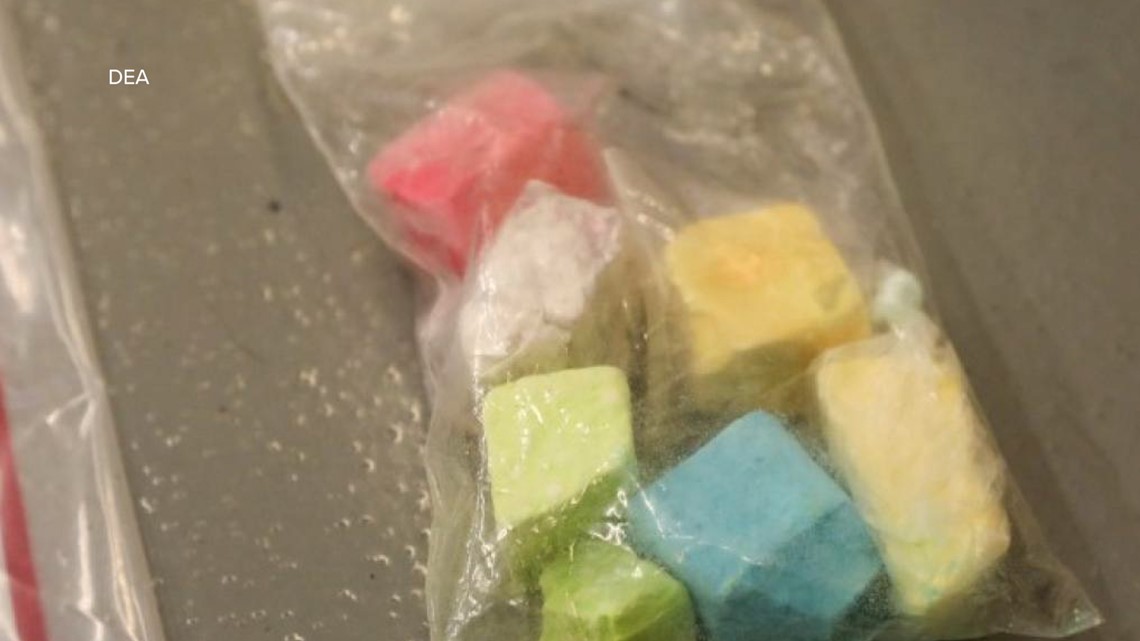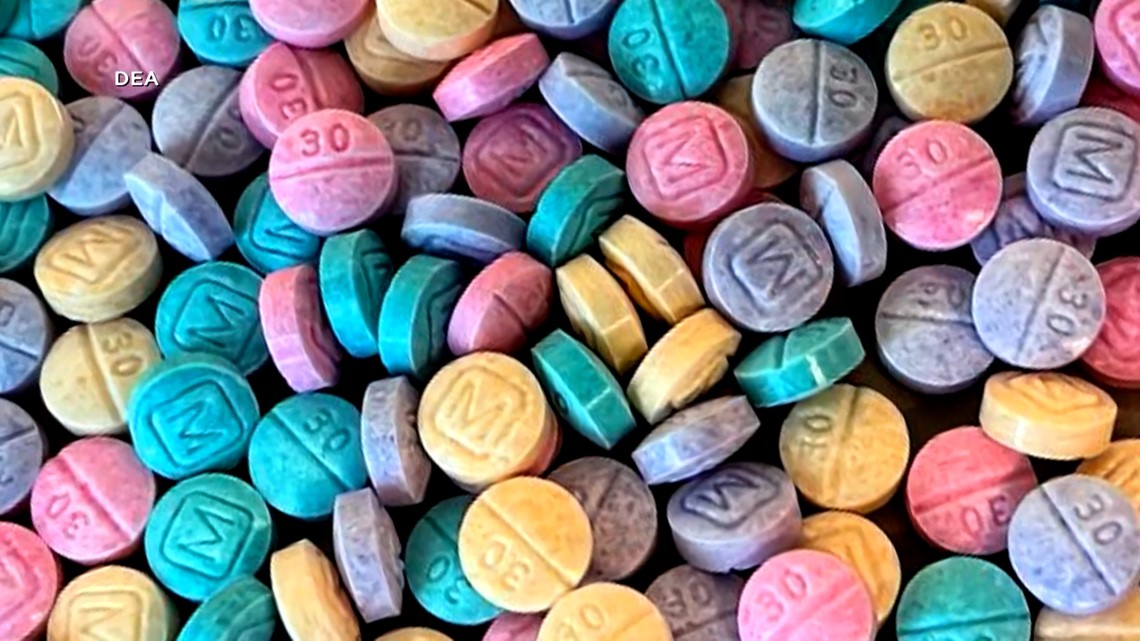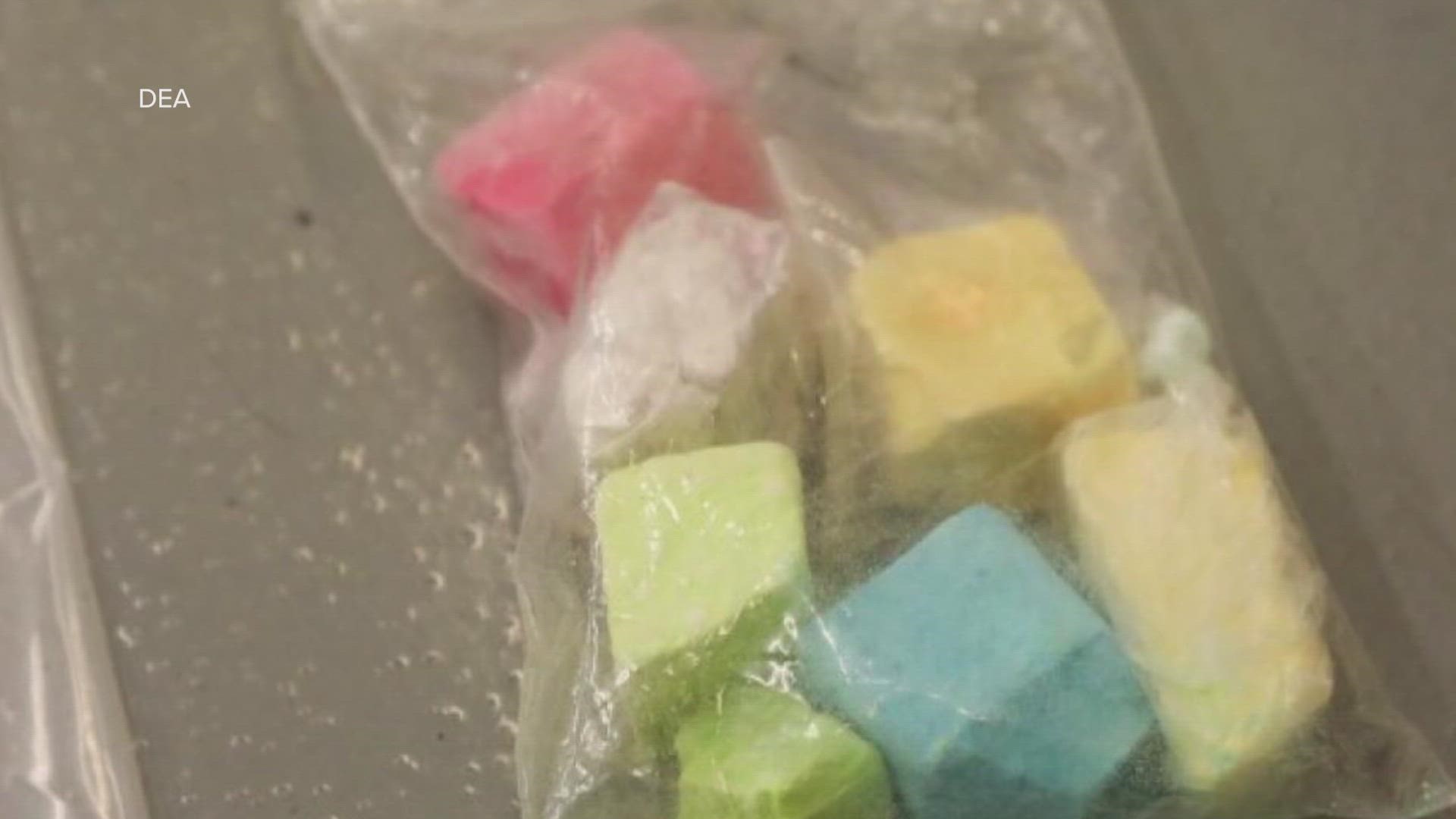SAN ANTONIO — Within the last month, three students within the same Texas school district died of an overdose.
The Kyle Police Department believes they took pills laced with fentanyl.
Experts say more and more fake pills are circulating, many of which are marketed toward young people.
According to the Drug Enforcement Administration (DEA), within the last year, a record 107,000 Americans died of a drug overdose. 66% were caused by synthetic opioids, like fentanyl.
"The leading cause of death between 18-year-olds and 45-year-olds is opiate poisoning and overdoses. That is more deaths than car wrecks, suicides and COVID," said Richard T. Sanchez, Assistant Special Agent in Charge of the McAllen Drug Enforcement Administration.
Sanchez says drug traffickers are making fentanyl disguised as sidewalk chalk, sugar cubes and candy.


"The two primary cartels responsible for this are the Sinaloa and the CJNG," Sanchez explained. "They're getting their chemicals sourced from China. They're making these pills in clandestine laboratories in Mexico and shipping them to the United States where our children are being poisoned...They target the youth to drive addiction, to make money."
Adderrall, Hydrocodone and other prescription drugs are being replicated.
"A deadly dose of Fentanyl is two milligrams, which is the equivalent to 10 to 15 grains of salt. Enough that would fit on the head of a pencil," said Sanchez. "One pill will contain much more Fentanyl than another because it's not a perfect mixture."
For those who survive an overdose, they're often sent to treatment centers like Laurel Ridge. It's the largest private behavioral health hospital in Texas.
CEO, Jacob Cuellar, says the 330-bed facility treats ages 4 and up.
"With regards to addictions, unfortunately we are seeing all ages, including an increasing amount of young adults using opiates," said Cuellar. "We're seeing, quite frankly, the use of all different types of opiates. Including smoking of fentanyl, trace amounts of fentanyl in other opiates or co-contaminants. We're hearing fentanyl is way cheaper to produce."
Experts say Fentanyl is 50 times stronger than heroin and 100 times more potent than morphine.


"I think it speaks to the tremendous challenges this generation of young people are facing. They're just overwhelmed. Whether it's back to school anxiety, whether it's the stress of school or even college. That long shadow of COVID is associated with it," Cuellar explained.
Speaking to the increased need of treatment for addiction, Cuellar says Laurel Ridge opened an 80-bed program at their property in 2020. He says in a matter of six months, it was at capacity.
Experts say if a drug isn't prescribed by a licensed medical professional, don't take it.
Drug traffickers are now using social media to market, sell and deliver these opiates. Sanchez recommends parents monitor their child's cell phone and begin conversations if they haven't already about the dangers of synthetic drugs.
"Cell phones have become the superhighway of narcotics traffickers and drug cartels of our time," said Sanchez. "No longer are they standing on a street corner, but they're hiding and masking themselves behind a cell phone."
September also marks National Recovery Month. The key is education, awareness and open conversations.
To learn more information, visit DEA.gov.

